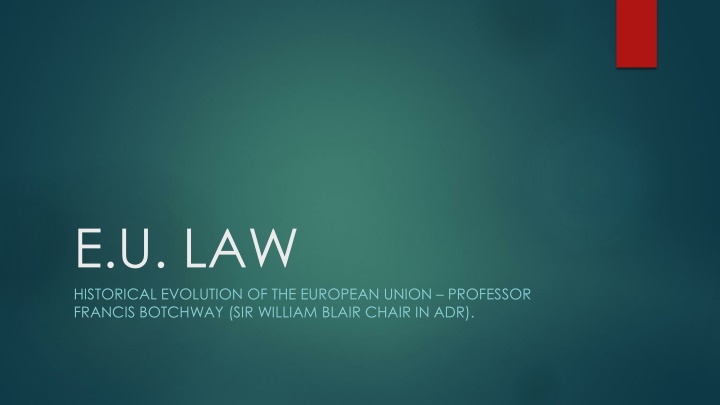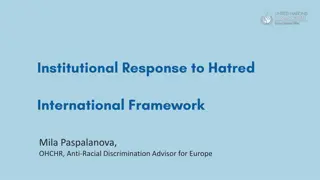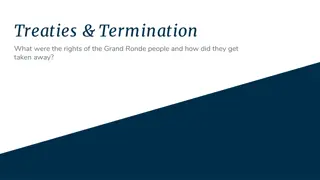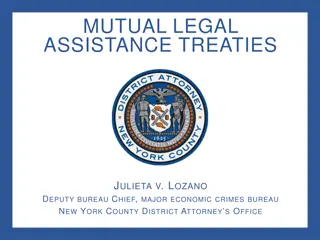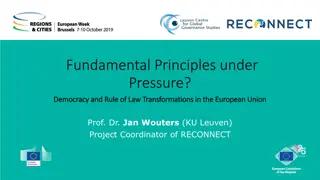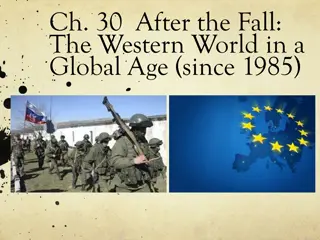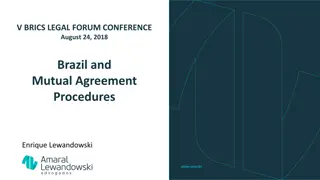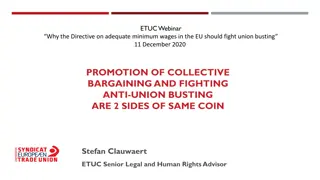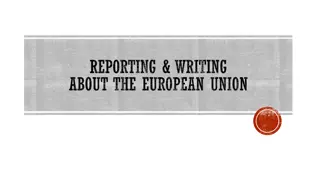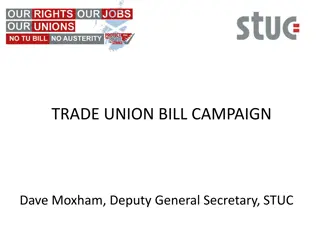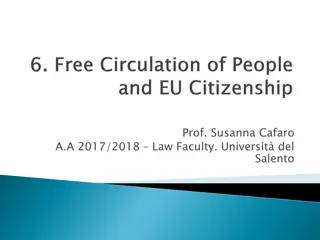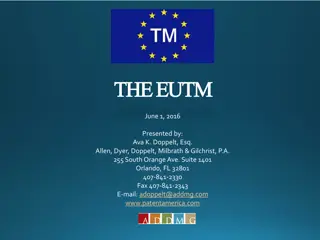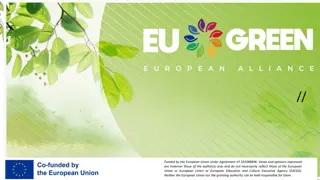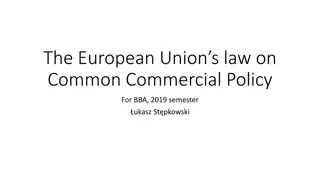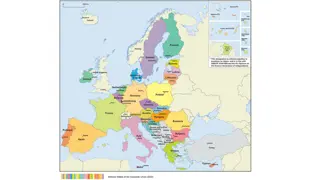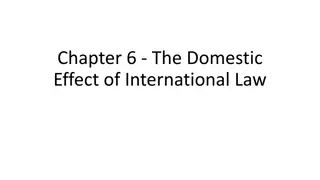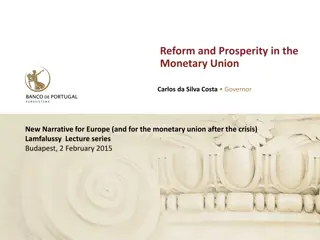Historical Evolution of the European Union: A Journey Through Treaties and Key Personalities
Explore the historical evolution of the European Union through key events, treaties, and personalities. From the Religious Wars to the establishment of the EU with treaties like the Maastricht Treaty, witness the progression towards a more united Europe. Learn about influential figures like Winston Churchill and key treaties shaping the EU's structure and policies.
Download Presentation

Please find below an Image/Link to download the presentation.
The content on the website is provided AS IS for your information and personal use only. It may not be sold, licensed, or shared on other websites without obtaining consent from the author.If you encounter any issues during the download, it is possible that the publisher has removed the file from their server.
You are allowed to download the files provided on this website for personal or commercial use, subject to the condition that they are used lawfully. All files are the property of their respective owners.
The content on the website is provided AS IS for your information and personal use only. It may not be sold, licensed, or shared on other websites without obtaining consent from the author.
E N D
Presentation Transcript
E.U. LAW HISTORICAL EVOLUTION OF THE EUROPEAN UNION PROFESSOR FRANCIS BOTCHWAY (SIR WILLIAM BLAIR CHAIR IN ADR).
Religious Wars Alexander the Great Peace of Westphalia in 1688 Napoleonic Wars Nazi War Marshall Plan
Key Personalities Winston Churchill (UK) Konrad Adenuer (Germany) Jean Monnet (France) Robert Schuman (France) Joseph Bech ( Luxembourg) Paul Henri Spaak (Belgium)
Treaties and Laws 1949 Council of Europe (Political council of West Europeans, not really based on treaty) 1950 European Coal and Steel Treaty (Germany, France, Italy, Belgium, Netherlands and Luxembourg ( Community based on heavy industry if no one country has control or monopoly over heavy industry, then there is less likelihood of war. (the idea of Monnet and Schuman). 1957 European Economic Community (Treaty of Rome creates the Common Market) free movement of goods and people
1957/58 EURATOM treaty European atomic energy community- this was a treaty between EEC and EURATOM 1965 Merger Treaty (Brussels Treaty) to create and streamline EEC institutions creation of European Commission, and Council to serve all three communities 1986 Single European Act to make room for qualified majority voting in the Council and give the Parliament more powers (this was in preparation to receive Spain and Portugal)
1992 Treaty on the European Union (TEU) Maastricht Treaty. Establishment of the European Union, the introduction of the co- decision procedure, more powers to the parliament and new areas of co-operation Justice, Defence and Home Affairs common foreign policy and common internal policy as well as European citizenship (passport). 1997 (came into force 1999) Treaty of Amsterdam reform the institutions in readiness for new members from Eastern Europe 2001 (came into force 2003)- Treaty of Nice changes in Commission composition and Council voting.
2007 (came into force 2009) Lisborn Treaty to make the EU more democratic, more efficient to be able to deal with global issues; creation of new posts eg High Rep for foreign affairs, clarified powers that belong to nation states and those that belong to the EU. 2020 Brexit agreement
